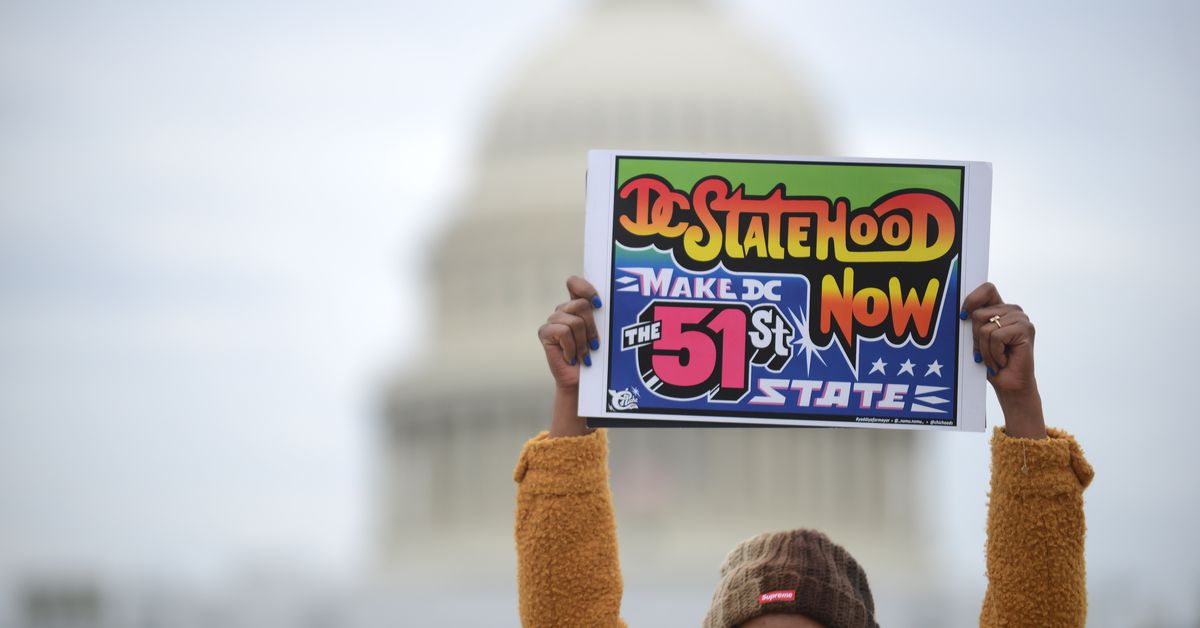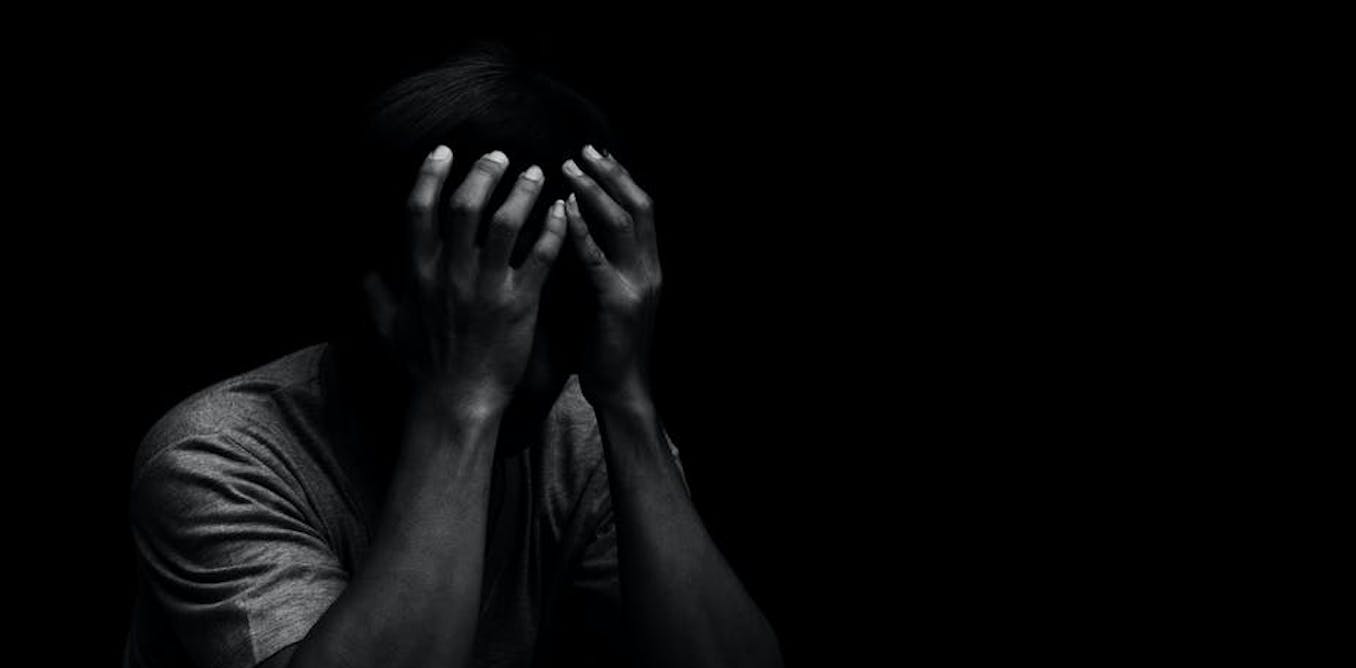For the first time in 30 years, Congress is on the verge of voting to overturn a law approved by Washington, DC’s city council, a move that underscores how much control federal lawmakers have over the district’s policies. The law — passed by the city council last year — updated DC’s criminal code, much of which has not been changed in more than a century. And although the DC city council chair has since tried to withdraw the law from congressional consideration, the Senate intends to move forward with a disapproval vote since the House has already held one.
Lawmakers’ push to roll back the city’s criminal justice reforms has renewed attention on how DC’s lack of statehood status makes it subject to the whims of the federal government. And it’s a reminder of the costs of the failure to make DC a state. Locally, that’s meant congressional control over the city’s laws and its budget, as well as federal taxes but no votes in Congress for the city’s residents. More broadly, it’s meant that Democrats haven’t been able to add to their votes in the House and Senate, something that DC statehood would likely result in since the city has typically elected Democratic leaders.
“This would be like Texas telling Massachusetts that their laws shouldn’t apply,” says Monica Hopkins, the executive director of the ACLU DC, of Congress’s actions. “There is no place more evident than in this resolution that DC is being used as a platform for messaging for politicians who are running for office.”
The effort to overturn the DC law has been driven by Republicans in the House and Senate, who’ve sought to use the measure as a way to paint Democrats in both the city, and nationally, as “soft on crime.” It’s also the latest instance of a mostly white Congress trying to undo the policies backed by the elected officials of a city where nearly 50 percent of the population is Black, a move that many local activists have decried as both undemocratic and racist.
In an unexpected move, President Joe Biden has said that he would sign the resolution to nullify the DC proposal if it passed the House and Senate. More than 30 Democrats supported the measure in the House, and an increasing number are poised to do so in the Senate as well. If passed and signed, the resolution would prevent this law from being imposed and force city officials to reevaluate it.
The fact that the resolution is likely to be successful has reactivated longstanding calls for statehood. Under a divided Congress, however, any attempts to approve DC statehood aren’t expected to pass in the near term.
Why Republicans — and some Democrats — are going after the DC criminal justice reforms
As outlined in the Constitution, Congress has significant jurisdiction over DC’s laws and even its budget. After decades of activism, DC locals successfully limited Congress’ power over the city, though federal lawmakers remain able to review any law that DC passes and can try to block it. To do so, a simple majority of members in the House and Senate need to support a resolution that would roll back that law. The president then needs to sign that resolution for it to actually take effect.
The attempt to undo the city’s updates to its criminal code is part of Republicans’ recurring messaging on crime, rhetoric they employed in the midterms to some success. Essentially the GOP message is this: Democrats everywhere want lax criminal policies that make Americans less safe, and for that reason, voters should back Republicans.
It’s potent in part because the rates of certain crimes have risen in different places during the pandemic. While overall violent crime is down in DC relative to this time last year, there’s been a 34 percent uptick in homicides and a large increase in motor vehicle thefts. Republicans were ultimately able to gain and hold congressional seats in places like New York and Wisconsin by harping on this issue.
The DC resolution is of a piece with that strategy. Initially introduced by Rep. Andrew Clyde (R-GA) in the House, it’s meant to once again suggest that Democrat-run cities, including DC, are unsafe. “The D.C. Council’s radical rewrite of the criminal code threatens the well-being of both Washingtonians and visitors — making our nation’s capital city a safe haven for violent criminals,” Clyde said in a statement.
Democrats are sensitive to this line of attack, especially as another competitive election looms in 2024. Biden and other Democrats’ support of the resolution seems designed to reaffirm their own “tough” stances on crime. Democrats have also ramped up their focus on the issue in the wake of specific instances of violence affecting their caucus, like a recent attack on Minnesota Rep. Angie Craig in her DC apartment building.
The use of fearmongering and political grandstanding as part of this discussion, however, masks the reality that DC’s changes to its crime code are focused on modernizing laws that have been outdated for some time.
As Slate’s Mark Joseph Stern explains, the bill includes changes to sentencing for different crimes like carjacking, but it does so to bring those sentences in line with what judges are already issuing. The existing criminal code lists an armed carjacking sentence at 40 years, for example, but the most severe penalty that’s currently doled out is roughly 15 years. The updated criminal code would also more clearly categorize offenses like robbery into different buckets so that a crime like pickpocketing would be treated differently than a crime like armed robbery, Stern explains.
And as Amy Fettig, the executive director of The Sentencing Project, told PBS, many of the updated sentences are still harsher than those of other Republican-led states including Georgia and Tennessee.
The changes, which were developed over six years, were approved by the City Council over the objections of Mayor Muriel Bowser, who has historically been more moderate on the issue. Now, since the law has been withdrawn, City Council Chair Phil Mendelson says officials will revisit the measure and consider the feedback lawmakers have expressed.
This debacle put new attention on DC statehood
Beyond blocking the implementation of the new criminal justice reforms, this whole debacle has also reignited the focus on DC statehood, which scored its most significant wins in 2020 and 2021, when the House passed bills supporting it.
“The only thing Congress is voting on is to overturn the local decision-making of 700,000 people,” says Bo Shuff, the executive director of DC Vote, of this week’s resolution.
Previously, the Biden administration had said it opposed congressional efforts to meddle in DC policy. The apparent change in stance took many House Democrats — 173 of whom voted against the resolution — by surprise.
Historically, there have been other times when Congress intervened in the city’s proposals including by barring the district from covering abortions for Medicaid recipients and preventing it from setting up a tax and regulation system for selling recreational marijuana. Previously, as Jerusalem Demsas reported for Vox, DC’s lack of statehood meant it received less funding in the CARES Act because it was considered a territory and not a state. The city’s population of more than 700,000 people is also larger in size than multiple states, including Wyoming and Vermont.
To become a state, DC would need both the House and the Senate to pass a bill in favor of it. That’s unlikely to happen in the near term since Republicans currently hold the House and do not support such measures, especially because it would give Democrats more votes in Congress. Additionally, this measure would have to clear a 60-vote filibuster threshold in the Senate, which would require Republican support. As Vox’s Ian Millhiser explains, it’s also likely that opponents to DC statehood would mount a legal challenge to the effort.
The last time that Congress approved a new state was in 1959, when lawmakers voted to do so with Hawaii. Statehood activists note that the disagreement over the criminal code has offered a clear argument for why DC should also be a state and have more control over its own policies.
“For the statehood movement, this is a really clear example of just the egregiousness that Congress and people from all over the country can decide for the people of DC,” says Shuff.




